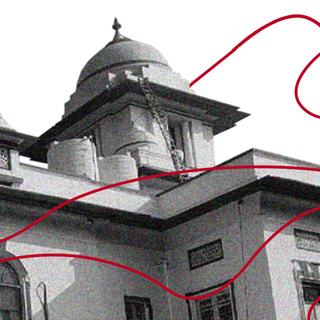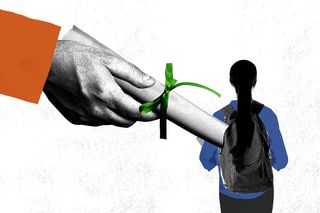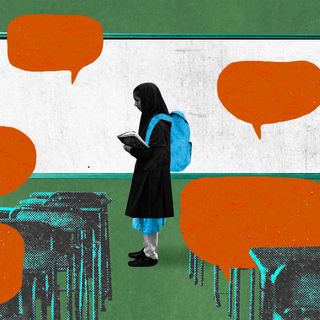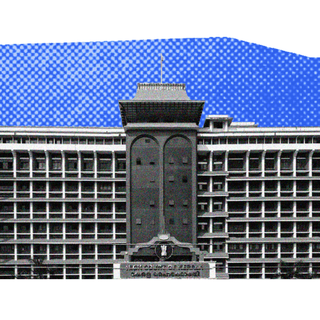
Centre Withdraws Scholarships for Marginalized Students Looking to Study About India’s History, Culture Abroad
“The government is clearly paranoid here… unnerved by academics based out of western universities questioning the rising tide of majoritarian authoritarianism in India.”

Students from marginalized backgrounds will no longer be able to avail a national scholarship to pursue courses related to Indian culture, heritage, history, or society in foreign universities, the government announced recently.
Since 1954, the Ministry of Social Justice and Empowerment provides funds for students belonging to Scheduled Caste (SC), Scheduled Tribes (ST), and landless agricultural laborer families under the National Overseas Scholarship (NOS) Scheme. Reportedly, the scheme only covered courses in science, technology, and engineering fields until 2012 — when humanities and social sciences were included. However, a good chunk of the latter has now been excluded. Not only that, the communication came quite close to the deadline for scholarship applications, which is March 31.
“There is a rich repository of resources and excellent universities and courses within the country on these subjects. We… felt that the scholarship for studying abroad was not needed to study Indian history, culture, or heritage… resources could be better spent on gaining expertise in other fields in foreign universities,” said R. Subrahmanyam, Secretary, Social Justice, and Empowerment Department, explaining the rationale behind the exclusion.
The decision of the government is drawing flak — not just because the announcement of the exclusion has come so close to the application deadline, but also because it was made without any public consultation on how it could impact students whose educational prospects are at stake. Moreover, given that the scheme applies only to marginalized students, the revision, too, shall affect their prospects alone — restricting their career choices, and putting them at a disadvantage against non-marginalized students who can afford the same degrees for themselves.
Related on The Swaddle:
Harvard University Recognizes Caste‑Based Discrimination, Includes Caste Under ‘Protected’ Category
Further, as Satish Deshpande, a professor at the Delhi University, told Deccan Herald, “The standard of education in India needs an overhaul; in general India’s spending on the social sector, and education in particular, needs to be revised.” With the infrastructure for social studies in India drawing censure thus, it seems even more unfair to preclude marginalized students from pursuing their degrees abroad.
If that wasn’t all, academic freedom, too, is on the decline in India — restricting the scope of topics and related discussions. Last March, a global report drew attention to the weakening state of academic freedom in India, noting a rise in “intimidation of professors, students, and institutions over political and religious issues” in 2020. In November the previous year, India plummetted from grade ‘B’ to ‘D’ on an international metric of academic freedom — comparable to the score of countries like Saudi Arabia and Libya.
Increasingly, “sensitive” topics of research — particularly within the social sciences and humanities — are restricted under the garb of national security. This further closes off options for all students seeking a social science education, and of course, the revisions to the NOS scheme make it worse for students from oppressed castes.
Last February, the central government mandated public universities to seek government clearance for virtually hosting international seminars about India’s “internal” matters — a decision later withdrawn following sharp criticism. In September last year, the Central University of Kerala issued a “gag order” preventing staff and faculty members from making “anti-national” statements — threatening anyone who violates the order with disciplinary action. In 2018, the same university had suspended another associate professor for writing a Facebook supporting a Dalit student, who had been arrested on the charge of breaking the glass pane of a fire alarm cabinet at the university hostel.
Related on The Swaddle:
Casteism Still Thrives in Elite Schools in India. What Would Anti‑Caste Education Look Like?
“The administration has created an atmosphere of fear on the campus with such decisions, although most of us are against curtailing academic freedom,” a faculty member at the university had told The Telegraph on the condition of anonymity.
However, when it comes to universities abroad, Indian authorities can’t exercise similar control. According to Deepak Malghan, a professor at IIM, Bangalore, this could be a possible reason why the center has taken this step. “[T]he government is clearly paranoid here… It seems to have been unnerved by academics based out of western universities questioning the rising tide of majoritarian authoritarianism in India,” he said.
Moreover, for students from marginalized communities, foreign education may have certain advantages. “Obtaining a Ph.D. degree from an overseas institution offer better chances of securing faculty positions at elite Indian institutions. Above all, a foreign degree offers a potential escape from the ‘lack of merit’ insinuation that scholars from marginalized communities endure daily — even when a scholar has not availed reservation benefits,” The Wire states.
Perhaps, as Malghan notes, “the government is also… worried about Dalit students adding more ballast to growing calls at universities in the U.S. to recognize caste as an independent protected category.”
Devrupa Rakshit is an Associate Editor at The Swaddle. She is a lawyer by education, a poet by accident, a painter by shaukh, and autistic by birth. You can find her on Instagram @devruparakshit.
Related


How Schools, Colleges Socialize Indians Into Perpetuating Islamophobia
